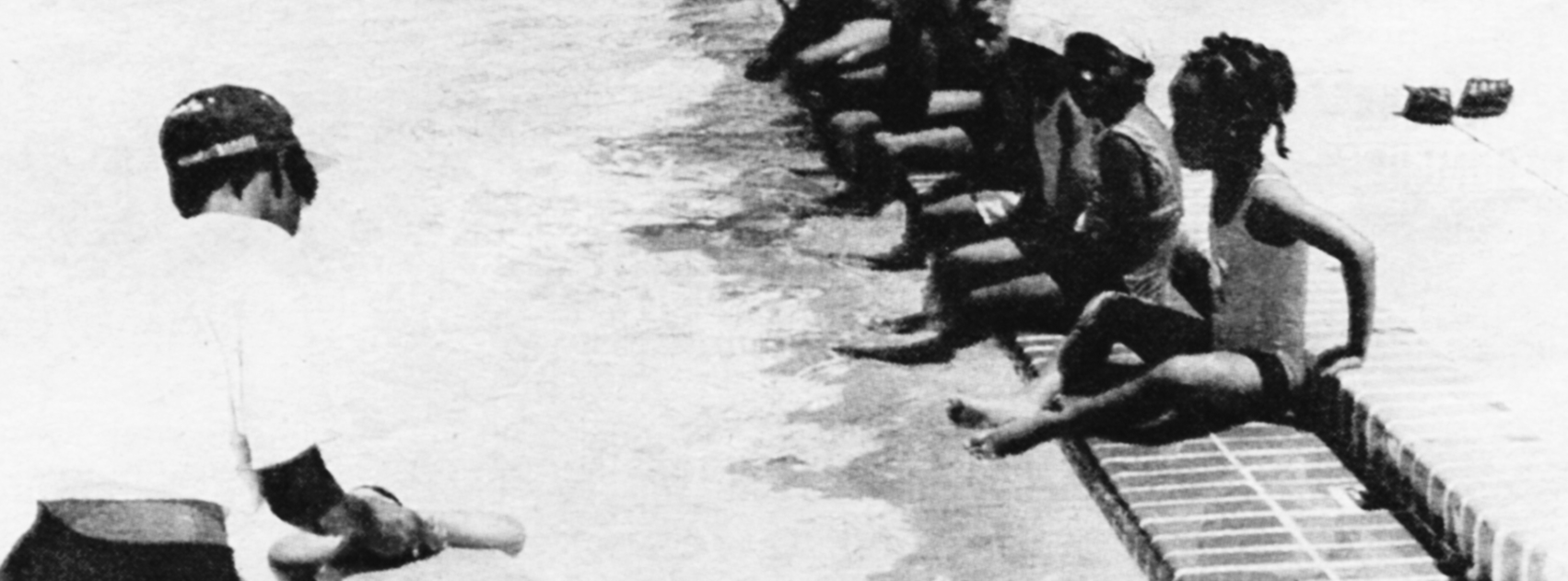Landmark YMCA Desegregation Ruling Turns 40
Forty years ago this month, Morris Dees won a lawsuit that desegregated the Montgomery, Alabama, YMCA and laid the foundation for the Southern Poverty Law Center.
Vincent and Edward Smith were 7-year-old cousins who wanted to attend a two-week YMCA summer camp in Montgomery, Ala.
But it was 1969, and the Montgomery YMCA refused to admit the two black youngsters. The YMCA was the city's main provider of recreation, but it also was a bastion of segregation in a city known as the birthplace of the civil rights movement.
Despite the sweeping legislative victories of the civil rights movement, the change the new laws promised was slow in coming to the South as community leaders clung fiercely to the last vestiges of segregation. Few lawyers had the willingness or resources to take cases that would challenge the status quo and, often, the most powerful people in town.
But 40 years ago this month, a young Alabama lawyer named Morris Dees won a lawsuit that desegregated the Montgomery YMCA and laid the foundation for the Southern Poverty Law Center.
"From the moment this case was filed, it struck a raw nerve in Montgomery," said Dees, SPLC founder and chief trial counsel. "Almost every important civic leader in Montgomery was on the YMCA's board of directors. It didn't sit well with a lot of people at the time, but this case changed Montgomery for the better."
Like other cities across the South, Montgomery took the extraordinary step of closing public swimming pools, parks and recreational facilities rather than desegregate them. The city even filled its swimming pools with dirt.
With the city's recreational facilities closed, the YMCA experienced phenomenal growth. It became the city's primary provider of recreation, but on a segregated basis. Black and white children were not only segregated but the children who swam at the pool for blacks were excluded from competing in citywide swim meets.
Dees filed a class action lawsuit charging that the YMCA refused to accept the boys' applications because of race. The suit asserted the YMCA's recreation programs were public accommodations and that by engaging in racial discrimination, the organization was violating the Civil Rights Act of 1964. It also argued that the public services offered by the YMCA and the benefits it received from the government made it, in effect, a quasi-governmental agency, requiring it to comply with the equal protection clause of the 14th Amendment.
Many of Montgomery's community leaders were upset that Dees, a white businessman with a law degree, would challenge the status quo. It was the type of reaction that would follow him throughout his civil rights law career and spur some to brand him a "Commie lawyer" or worse.
In fact, almost six years after filing the YMCA lawsuit, Time magazine would describe Dees as "the second most hated man in the state." The title of "most hated man in the state" belonged to U.S. District Court Judge Frank Johnson, whose civil rights enforcement record earned him the title.
Dees knew winning the case would not be an easy task, despite the fact that Judge Johnson was hearing it. Private organizations were considered beyond the reach of civil rights law, and the YMCA would argue that it was not a public entity.
"I needed a smoking gun, something that would shoot down the Y's primary defense," Dees wrote in his autobiography, A Lawyer's Journey.
Dees found that. He uncovered a secret agreement between city officials and the YMCA that gave the organization control of many of the recreational activities formerly sponsored by the city. The agreement was just the piece of evidence he needed to prove that the organization stepped into the city's shoes to provide an array of segregated activities.
On July 20, 1970, Judge Johnson ruled in Smith v. Young Men's Christian Association that the city had invested the YMCA with a "municipal character." He ordered the YMCA to end its discriminatory practices.
The judge also ordered the YMCA to pay attorneys' fees for the plaintiffs. Dees and his co-counsel agreed to forgo that money if the YMCA would use it to give memberships to poor children regardless of race. The YMCA fulfilled the agreement.
Years later, the YMCA's executive director would thank Dees for filing the lawsuit, saying that without it he wouldn't have been able to desegregate the organization. The case also underscored how the laws ushered in by the civil rights movement had not yet brought the fundamental changes needed in the South. These laws needed to be enforced. There was a need for lawyers willing to champion the causes of the powerless to ensure that the promises of the civil rights movement became a reality.
Dees was committed to that goal, and he discovered that another young Alabama lawyer, Joe Levin, had been following the YMCA case closely and cheering him on. Dees and Levin began taking on civil rights cases, a collaboration that would lead to the founding of the Southern Poverty Law Center in 1971.


